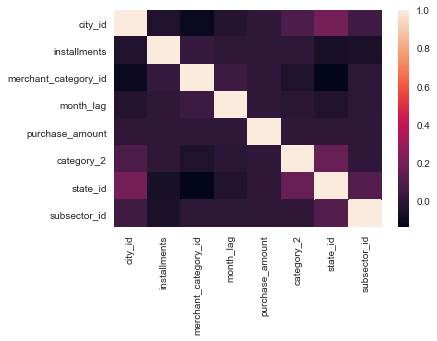The Hookup Doctor's Guide
Navigating the world of modern dating and relationships.
Loyalty Scoring Algorithms: The Secret Sauce to Customer Retention
Unlock the power of loyalty scoring algorithms and discover how they can transform customer retention strategies for explosive business growth!
Understanding Loyalty Scoring Algorithms: How They Enhance Customer Retention
In the competitive landscape of modern business, loyalty scoring algorithms play a crucial role in enhancing customer retention. These algorithms analyze vast amounts of customer data, identifying patterns and behaviors that indicate loyalty. For instance, factors such as purchase frequency, average order value, and customer engagement levels are considered to generate a score that reflects a customer's propensity to return. By leveraging these insights, businesses can tailor their marketing strategies to nurture high-scoring customers and re-engage those with lower scores, ultimately fostering a more loyal customer base.
Moreover, understanding and implementing loyalty scoring algorithms not only aids in retaining customers but also enhances overall customer experience. Companies can segment their customer base based on loyalty scores and create targeted, personalized campaigns. For example, they may offer exclusive discounts to high-scoring loyal customers or implement win-back strategies for those at risk of churning. By effectively utilizing these algorithms, businesses can ensure that their efforts are focused on the right audience, significantly improving customer satisfaction and long-term retention rates.

Counter-Strike has been a leading title in the first-person shooter genre for many years, captivating players with its strategic gameplay and team-based mechanics. Many gamers seek opportunities to enhance their experience, such as using a duel promo code to gain advantages or unlock in-game items. The competitive nature of the game fosters a vibrant community of players and esports enthusiasts alike.
The Science Behind Loyalty Scoring: What Businesses Need to Know
The concept of Loyalty Scoring is rooted in behavioral science and customer relationship management. It quantifies the likelihood of a customer returning based on various factors, including purchase history, frequency of engagement, and customer feedback. By analyzing these metrics, businesses can categorize customers into segments ranging from highly loyal to at-risk. A robust loyalty scoring system not only helps in identifying customers who contribute most to the bottom line but also allows businesses to tailor their marketing strategies accordingly.
To implement an effective loyalty scoring model, it is crucial for businesses to gather and analyze data from multiple touchpoints. This includes customer surveys, transaction records, and online behavior tracking. Utilizing software that integrates these data sources can streamline the process, making it easier to calculate loyalty scores. Furthermore, businesses should regularly review their scoring criteria to adapt to changing customer behaviors and market trends, ensuring they remain relevant and competitive in their loyalty programs.
Are Loyalty Scoring Algorithms the Key to Your Customer Engagement Strategy?
In today's highly competitive market, understanding customer behavior is essential for any effective engagement strategy. One innovative approach that businesses are increasingly adopting is **loyalty scoring algorithms**. These algorithms analyze various data points—such as purchase frequency, customer feedback, and social media interactions—to assign a loyalty score to each customer. By implementing these scoring systems, companies can tailor their marketing efforts and enhance customer experience, ultimately driving stronger connections. Are loyalty scoring algorithms the key to your customer engagement strategy? The answer lies in how well you can leverage these insights for targeted engagement.
Utilizing **loyalty scoring algorithms** not only helps in identifying high-value customers but also in understanding their needs and behaviors. For instance, a business can track changes in customer scores over time, allowing for adaptive strategies that better align with customer preferences. This method fosters brand loyalty as customers feel more valued when they receive personalized offers and communication. Moreover, companies can utilize automated tools to segment their customer base based on loyalty scores, ensuring that marketing efforts are both efficient and effective. By embracing technology in this manner, businesses can significantly enhance their overall customer engagement strategy.